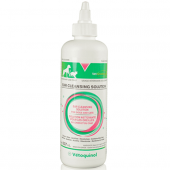Condo owners and apartment dwellers often face additional challenges when adopting a dog. While there’s no definite “best” dog when living in a shared building, some breeds require more commitment or adaptation than others. Here are some suggestions to help you find a four-legged friend that may be better suited for your lifestyle.
5 qualities to look for in an apartment dog
1- Compliance with building rules
An obvious but essential first step: check with your landlord or condo owner association for any rules and regulations regarding pets. Some buildings may charge additional fees, list conditions that must be met regarding noise disturbance, including limitations regarding weight or height, or prohibit specific dog breeds.
2- Suitable size for the available space
Larger dogs require more exercise and space to move around than smaller breeds. Unless you have free access to a yard where your buddy can run, be prepared for regular walks or play sessions at the nearest dog park.
3- Realistic time commitment
All dogs require time from their owners every day to meet their needs for exercise and social interaction, though the amount may vary by breed. If you’re working full-time at an office, you may need to help your furry friend get used to being alone.
4- Manageable barking
Dogs may bark when they’re hungry, want to go out, feel nervous or anxious, or perceive a threat. Many breeds like Beagles, Terriers, German Shepherds and Dachshunds have a reputation for being particularly vocal. Consider behavioural training to manage your dog’s barking, and provide them with plenty of toys to keep their mind busy.
5 great dog breeds for apartment living
1- English bulldog
With their gruff appearance and heavy frame, most English bulldogs only require short, regular walks and will otherwise be happy lounging on a couch. They’re considered calm, easygoing and protective companions. Shorter French bulldogs and Pugs are also excellent choices in tighter spaces. One thing to watch for is that flat-nosed breeds like these have a lower tolerance for hot weather and should have access to air conditioning or a cool place in the summer.
2- Chihuahua
Chihuahuas’ tiny stature makes them a perfect fit wherever space is an issue. They also require minimal exercise: simply running from one room to the next all day long is already quite a trek for them! However, they tend to be vocal and may need to be trained against alert barking.
3- Cavalier King Charles spaniel
Mild-mannered, affectionate, quiet and friendly, this small and adorable spaniel breed will feel right at home when surrounded by family members, regardless of the available space. A downside to this close bond is that they don’t like being left alone and may need some time adapting. They also require a moderate amount of exercise and grooming.
4- Basenji
These small hound dogs are often described as having “catlike” personalities—they’re intelligent, independent, and groom themselves frequently, shedding very little hair. They don’t bark loudly, instead emitting a distinctive yodel or chortle. They require daily, vigorous activity to spend their high energy level or risk becoming bored.
5- Greyhound
How can these relatively large canines bred for racing make great apartment dogs? Because as sprinters, they expend their energy quickly. They’ll happily join you on a morning or weekend run before spending the rest of the day napping or lounging alone.






